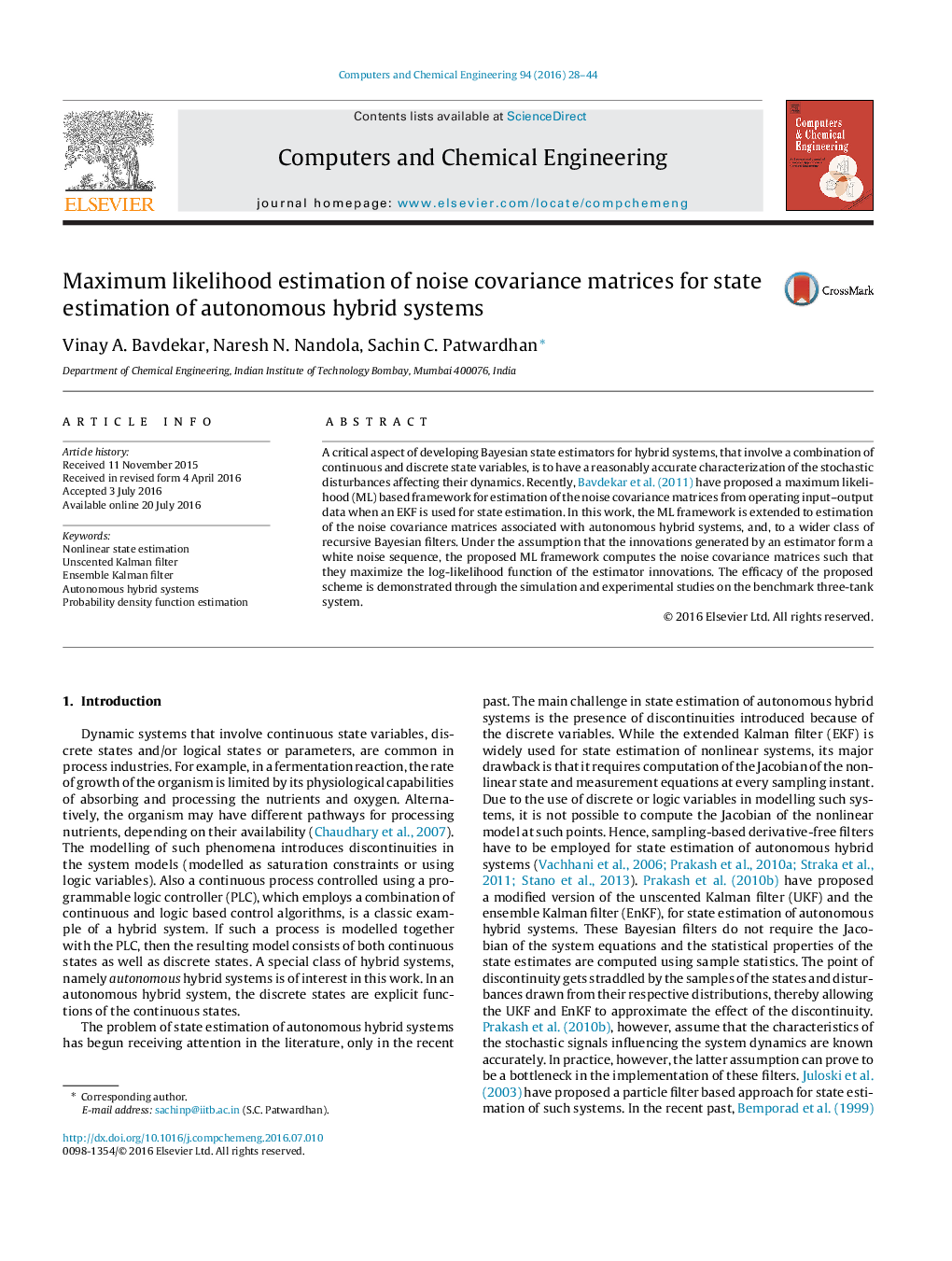| Article ID | Journal | Published Year | Pages | File Type |
|---|---|---|---|---|
| 6595111 | Computers & Chemical Engineering | 2016 | 17 Pages |
Abstract
A critical aspect of developing Bayesian state estimators for hybrid systems, that involve a combination of continuous and discrete state variables, is to have a reasonably accurate characterization of the stochastic disturbances affecting their dynamics. Recently, Bavdekar et al. (2011) have proposed a maximum likelihood (ML) based framework for estimation of the noise covariance matrices from operating input-output data when an EKF is used for state estimation. In this work, the ML framework is extended to estimation of the noise covariance matrices associated with autonomous hybrid systems, and, to a wider class of recursive Bayesian filters. Under the assumption that the innovations generated by an estimator form a white noise sequence, the proposed ML framework computes the noise covariance matrices such that they maximize the log-likelihood function of the estimator innovations. The efficacy of the proposed scheme is demonstrated through the simulation and experimental studies on the benchmark three-tank system.
Keywords
Related Topics
Physical Sciences and Engineering
Chemical Engineering
Chemical Engineering (General)
Authors
Vinay A. Bavdekar, Naresh N. Nandola, Sachin C. Patwardhan,
